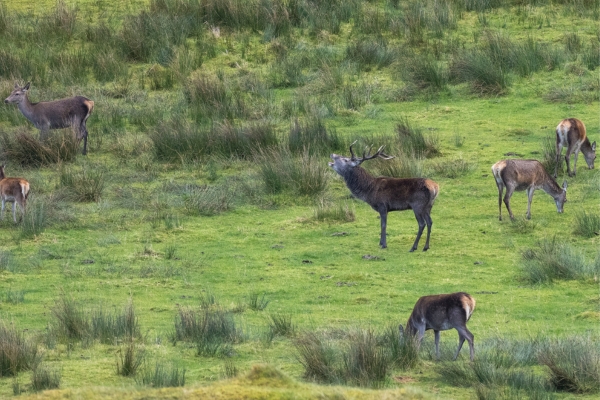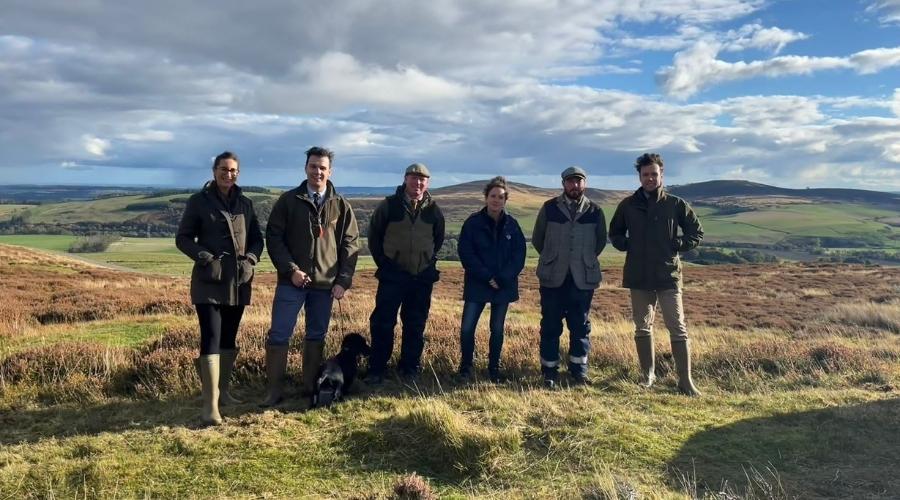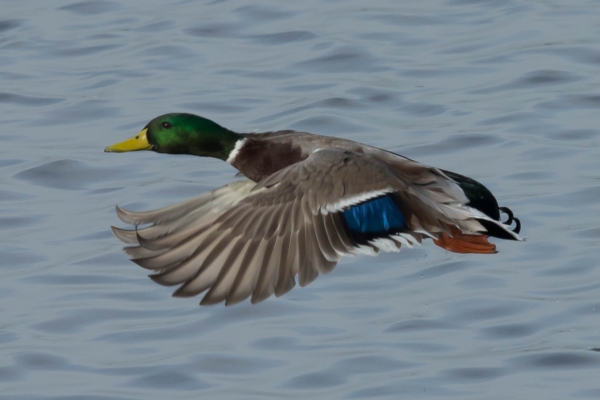
What’s next for deer management in Scotland?
With proposals for major changes in deer management in sight, BASC Scotland director, Peter Clark, reflects on the latest developments.
Get information on the legal shooting season for mammals and birds in the UK.
Apply for funding for your project or make a donation today
Comprehensive information and advice from our specialist firearms team.
Everything you need to know about shotgun, rifle and airgun ammunition.
Find our up-to-date information, advice and links to government resources.
Everything you need to know on firearms law and licensing.
All the latest news and advice on general licences and how they affect you.

Mairi Gougeon, MSP for Angus and North Mearns, visited Glen Lethnot Estate in the Angus Glens last week for a first-hand demonstration of muirburn – the controlled burning of small patches of heather to rejuvenate it.
The visit, organised by Scotland’s Regional Moorland Groups, BASC and Scottish Land & Estates, was an opportunity to discuss strategies for wildfire mitigation, peatland protection and the estate’s ongoing conservation work.
Ms Gougeon, who is also Cabinet Secretary for Rural Affairs, observed a controlled burn, also known as a ‘cool burn’ or muirburn, and tried her hand at using equipment such as leaf-blowers which are employed to decisively extinguish flames.
After the burn had been put out, the headkeeper, Martin Taylor, demonstrated the moisture that had been retained in the moss – illustrating how muirburn targets just the upper lengths of vegetation and does not set fire to the soil or peat beneath.
The Cabinet Secretary also observed heather cutting, undertaken with a tractor and flail-mower.
Peter Clark, BASC Scotland’s Public Affairs Manager, said: “Muirburn revitalises Scotland’s upland landscapes and creates a diverse mosaic habitat, which in turn, increases the abundance of iconic species such as lapwing, curlew, and golden plover.
“It is an extremely important land management tool, which is used effectively to tackle the twin climate and nature crises that Scotland is currently facing.
“We would like to thank Ms Gougeon for the opportunity to meet and discuss these issues, at a time when the management of the countryside is in sharp focus at Holyrood”.
The visit included inspecting patches of heather that had been burned in previous years to review the biodiversity outcomes.
In areas that had been burned the year before, there was a rich biodiversity of fauna and flora – including ling heather, bell heather, blaeberry and sphagnum moss. The land managers explained how muirburn also benefits a range of vulnerable ground nesting bird species including curlew, golden plover, merlin, whinchat and lesser redpoll.
Lianne MacLennan, National Coordinator of Scotland’s regional moorland groups, said: “Grouse moor management supports the natural beauty of places like Glen Lethnot and also provides employment to thousands of gamekeepers and rural businesses. We have the perfect balance of job creation and conservation to ensure rural communities can thrive in Scotland while protecting our natural biodiversity.”
Ross Ewing, Moorland Director of Scottish Land & Estates, added: “Muirburn is a traditional land management practice which delivers a range of conservation benefits.
“The crucial role of muirburn in combating wildfires is increasingly recognised. Unlike muirburn, wildfires generate huge temperatures and set fire to the soil itself. This year 440 wildfires were recorded across the UK, the highest number on record. Scotland is not immune from the effects of climate change and controlled burning plays a major part in preventing these catastrophic wildfires, which threaten property, put lives at risk, and generate huge carbon emissions.”
Scottish Fire & Rescue Service supports controlled burning in order to reduce the fuel load of vegetation available to burn in a wildfire and to create fire breaks.
Glen Lethnot Estate is committed to conservation for the benefit of a range of upland species, with habitat management and predator control two of the key elements proven to deliver results.
Probably the least well known of the Angus Glens, Glen Lethnot is a beautiful moorland landscape rising to the high points of Cruys and Corrie na Berran, with abundant wildlife including mountain hares, golden eagles and wading birds such as curlew and lapwing.
Want to read more news from BASC Scotland? Head to our dedicated pages here.

With proposals for major changes in deer management in sight, BASC Scotland director, Peter Clark, reflects on the latest developments.

Following a third consecutive day of thaw conditions, the call for voluntary restraint in the shooting of waterfowl in Scotland has been lifted.

If left unchanged, the Hunting with Dogs (Scotland) Bill will ban the use of more than two dogs to flush rabbits from cover.